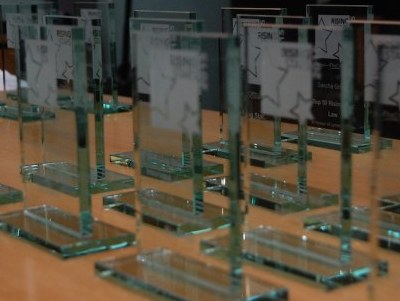 I am very pleased to have the opportunity to introduce this report presenting the findings of research carried out as part of the HE STEM funded ‘SET to Lead’ project. This study builds on previous excellent work investigating the career paths of engineering graduates, by CRAC and BIS, with an in depth analysis of the HESA destinations of leavers from higher education data and data from an on – line survey of 4,500 engineering and technology undergraduates on their career intentions. It is well known that smaller proportions of women than men register for undergraduate degree programmes in engineering and technology subjects. Although, to a large extent, this difference arises because only around 20% of those taking A – level physics are women, in undergraduate programmes in mechanical and electrical engineering the proportion of women is still only around 12%.
I am very pleased to have the opportunity to introduce this report presenting the findings of research carried out as part of the HE STEM funded ‘SET to Lead’ project. This study builds on previous excellent work investigating the career paths of engineering graduates, by CRAC and BIS, with an in depth analysis of the HESA destinations of leavers from higher education data and data from an on – line survey of 4,500 engineering and technology undergraduates on their career intentions. It is well known that smaller proportions of women than men register for undergraduate degree programmes in engineering and technology subjects. Although, to a large extent, this difference arises because only around 20% of those taking A – level physics are women, in undergraduate programmes in mechanical and electrical engineering the proportion of women is still only around 12%.It is important that all students benefit fully from their higher education experience and that we set them on the road to a successful career.
The evidence shows moreover that female graduates from engineering and technology degree programmes are less likely than men to enter engineering and technology – related roles once they have graduated. This research confirms findings that in part this may be due to women having lower “career confidence” than men. Indeed, it is clear that, on average, female survey respondents had lower confidence in their technical abilities than men. Encouragingly though, those women who had positive experiences during work placements or internships appeared to be more confident than other women. Presumably real – world workplace experiences prove to women that they are as good as men!
It is important that all students benefit fully from their higher education experience and that we set them on the road to a successful career. We have a strong commitment to developing a large and diverse engineering and technology ‘talent pool’ that can support the ‘innovation economy’. Recommendations and the design of resources for Set to Lead were supported by conversations with academics and employers. The content of the materials focuses on personal development and self-awareness. It is based on insights and experience from engineers in technical leadership roles. The materials were designed to be used by academics to support existing course materials and can be accessed from the UCL Engineering and Katalytik websites. The broad picture that the findings present is not new, but we have cast an interesting light onto what undergraduate students expect and their experiences on their course. Higher Education Institutions intent on ensuring that women benefit from their studies and experiences to the same extent as men would do well to heed the messages. Policy makers, employers and professional bodies and trade organisations too, should take note.







